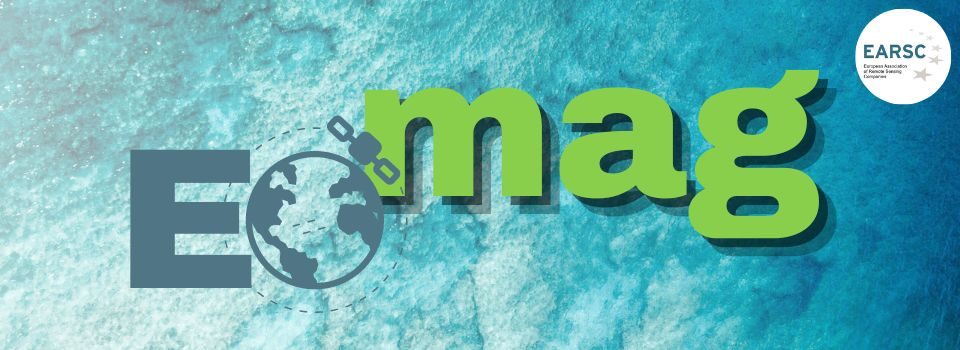A large-scale transformation has occurred on Earth, often ignored in headline stories on the topic of global change – for some years now, the number of people living in urban areas has exceeded that of those living in rural regions. Today, approximately 7.2 billion people inhabit our planet. By 2050, this number will have risen to nine billion, 70 percent of which will be living in cities. As a result, urban areas will account for 90 percent of population growth, 80 percent of increased prosperity and around 60 percent of energy consumption. Consequently, urban conurbations occupy a key role as centres of political, economic and cultural life. They will exemplify the future, defining how the coming generations will live and work.
How can the opportunities that urbanisation presents be put to good use? How can the negative ecological and social effects of rapid city growth be mitigated or avoided? These are central challenges that society will face over the coming decades. And it is here that Earth Observation can make a valuable contribution. Satellite-based geo-information delivers a current and comprehensive image of the built environment, while at the same time documenting its changes over time. The European Space Agency is operating Earth Observation satellites since more than 20 years and is serving the scientific, operational and commercial user community with different levels of information products. The traditional way of (single) sensor ground segments delivering physically data products to users performing their work locally and isolated, needs to be revised. While the availability of the growing volume of environmental data from space represents a unique opportunity for science, general R&D, and applications, it also poses a major challenge to achieve its full potential in terms of data exploitation.
Objectives
Urban Thematic Exploitation Platform (U-TEP) aims at bridging the gap between the technology-driven Earth Observation sector and the information needs of urban and environmental science, planning, and policy. U-TEP is using Earth Observation data and modern information technology to create and disseminate knowledge about the status, properties, cross-linking and dynamics of human settlements and their hinterland. Therefore, U-TEP provides a web-based, open and participatory platform that enables any interested user to easily exploit and generate thematic information on the status and development of the built environment.
Key component of U-TEP is the use of distributed high-level computing infrastructures providing functionalities for i) high-performance access to satellite imagery and thematic data, ii) modular and generic state-of-the art pre-processing, analysis, and visualization, iii) customized development and dissemination of algorithms, products and services, and iv) effective networking and communication. Based on these characteristics the U-TEP platform aims at opening up new opportunities to enable the creation and safeguarding of liveable cities by systematically exploring:
- The unique EO capabilities in Europe;
- The existing Big Data perspective;
- The rising high-level IT-infrastructures and processing power;
- The existing vast expert knowledge;
- The new media and ways of communication and connecting people.
With the objectives and functionalities described above, U-TEP is supposed to initiate a step change in the use of Earth Observation data and modern information and communication technology for the societal benefit. The new platform and its pool data and services help to acquire a better understanding of the urban environment and hence, in future, to respond appropriately to the immense social challenges of mushrooming cities, population explosion, climate change and the erosion of biodiversity. By improving the quality of spatial analysis and modelling, scientists benefit from the increase in the precision of data relating to settlement structures. Planning agencies and development banks are also important users of these new data and technologies. For instance, uniform data – applicable worldwide – on the location of settlements and including important parameters on their sizes and shapes, and also their compactness, help with the derivation of important information of a kind urgently needed in infrastructure planning. This is a crucial advantage, especially in remote and underdeveloped regions of Earth, where suitable geographical data are frequently scarce.
Technological Advances
By exploiting the new opportunities in the Earth Observation and Information and Communication sector, U-TEP Urban will contribute to initiate step changes regarding:
- Remote processing, by bringing users and functionalities to big data inventories.
- Enabling technology, by supporting large-scale and complex data exploitation.
- Market place of ideas and driver of innovation, by facilitating the sharing of data, technology, and knowledge.
- Community stimulation and outreach, by following an open, participatory, and collaborative policy.
The U-TEP technical concept is based on a generic, modular, multi-purpose design facilitating maximum flexibility with respect to the adaptation to and integration of user requirements, application scenarios, processing and analysis technologies, and IT infrastructures. Nevertheless, the U-TEP platform is not designed to provide direct access or distribute Earth Observation data.
Users
Users whom the platform is designed to benefit, therefore, are scientific users, public authorities and governmental organisations, non-governmental and non-institutional communities, and commercial communities from all levels relevant to the urban domain (global, European, national, regional, local).
The main user community groups involved in U-TEP are the World Bank Group, Group on Earth Observation, European Environment Agency, DG Regio, International Society of City and Regional Planners, and City of Prague.
The Team
The Urban Thematic Exploitation Platform is being developed by a consortium led by the German Aerospace Center (DE), and involving Brockmann Consult GmbH (DE), Gisat s.r.o. (CZ), IT4Innovations (CZ), and Terradue Srl (IT).
Gisat provides wide range of geoinformation services based on Earth Observation technology. It focuses on operational application of satellite mapping to monitor various aspects of our environment and development of dedicated web based platforms for geoinformation analysis and assessment
Web // E-mail // Tel:+420 271741935 // Fax: +420 271741936
